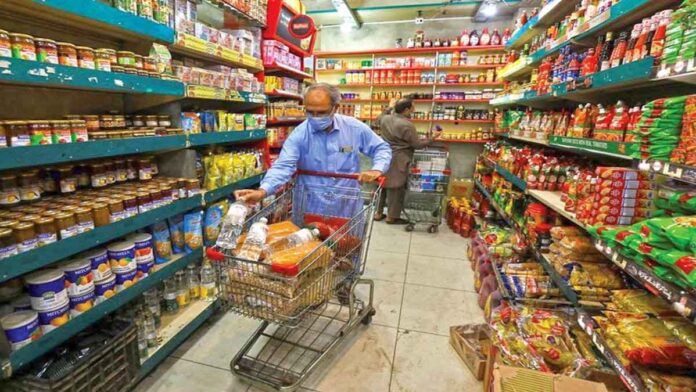ISLAMABAD:
State Bank of Pakistan (SBP) Governor Dr Reza Baqir said on Thursday that economic growth may slow down to around 4.5% in current fiscal year and inflation and current account deficit would remain the two key challenges.
“We are trying our best to contain the current account deficit through exchange rate and interest rate policies and hope that we will weather it much better than before,” said Baqir.
The governor delivered a speech on the economic outlook of Pakistan at Swiss embassy in Islamabad.
The event was hosted by Swiss Ambassador Benedict de Cerjat and was attended by the British high commissioner and European Union ambassador along with representatives of Swiss companies working in Pakistan.
In his opening remarks, the Swiss ambassador termed the full autonomy of SBP and the revival of IMF programme positive news and listed peaking inflation, low economic growth, widening current account deficit and risk of foreign debt crisis as challenges for Pakistan and sought the governor’s opinion.
Read also : Pakistan becomes 4th largest bike manufacturer in the world
Baqir hoped that against $19 billion in current account deficit in 2018, the gap would be lower in the ongoing fiscal year and while showing a slide put the deficit below $15 billion.
The current account deficit is primarily driven by commodity prices as non-oil balance is projected to remain in surplus in response to the coordinated monetary and fiscal policies, he added.
He spoke a day after the International Monetary Fund (IMF) warned of elevated risks to Pakistan’s economy from the growing current account deficit that it projected would widen to 4% of gross domestic product (GDP) in the current fiscal year.
Inflation is projected to remain in double digits by the year-end, according to the IMF.
In the midst of the higher current account deficit, the IMF has placed a requirement to increase the gross official foreign exchange reserves to $21.2 billion by June 30 – an addition of $5.5 billion in just five months.
The governor said that economic growth would taper off to around 4.5% in the backdrop of a higher growth rate in the last fiscal year.
“I do not share optimism about the economic outlook as there is a shortage of fertiliser and large-scale manufacturing is slowing down,” said MNA Dr Ayesha Pasha while responding to the governor’s speech.
The governor said that “we do see the impact of shortage of fertiliser on agriculture”.
The IMF said that Pakistan’s economy was set to continue its recovery in fiscal year 2021-22 with the real GDP growth projected at 4%, while inflation was expected to pick up this year before gradually slowing down.
The IMF has projected 10.2% inflation by the end of current fiscal year.
Terming inflation another problem for Pakistan, the governor blamed global commodity prices for the upsurge. The rise in inflation following the commodity price hike has been broadly in line with that in other countries, he added.
Pakistan is in the middle of countries that saw an increase in prices, as the additional increase in inflation was 5% from the point the global commodity prices started increasing, said Baqir.
To a question about the role of government’s administrative decisions and the Rs2 trillion monetary package that the central bank gave during the Covid-19 pandemic in stoking inflation, Baqir said that a major chunk of the Rs2 trillion incentives were withdrawn after the economy recovered.
If global commodity prices do not fall, then inflation will become a huge challenge, said the governor.
He hoped that the central bank would be able to achieve the 5-7% medium-term inflation target, as he saw the annual inflation slowing down to that range in the next fiscal year.
The governor said that the transformation towards treasury single account should be done fast.
Under the IMF deal, the government has committed to close all government entities’ accounts in commercial banks and transfer cash to the central bank, including the accounts maintained by armed forces.
The EU ambassador raised a question about the indemnity granted to the SBP officials and the board of directors under the new law. However, the governor said that the new central bank law was in line with the best international practices.
The UK high commissioner sought the governor’s opinion on the low tax-to-GDP ratio and the energy sector problems. Baqir said that these two areas posed a challenge to the public debt outlook. However, in his speech, the governor said that despite Covid-19, Pakistan’s debt-to-GDP ratio reduced by 2.9% against an increase in other countries.
To a question about whether the Chinese $4.5 billion currency swap was also part of the public debt-to-GDP ratio, which was shown on the declining path, the governor said that the $4.5 billion currency swap was the liability of the central bank.
The Fiscal Policy Statement 2021-22, which the finance ministry submitted in the National Assembly this week, revealed that the per capita debt increased 49% to around Rs179,000 during the initial three years of the Pakistan Tehreek-e-Insaf (PTI) government.
An investor complained about restrictions on outbound remittances but the governor said that the outward flow of remittances to Switzerland was higher than the previous fiscal year.

